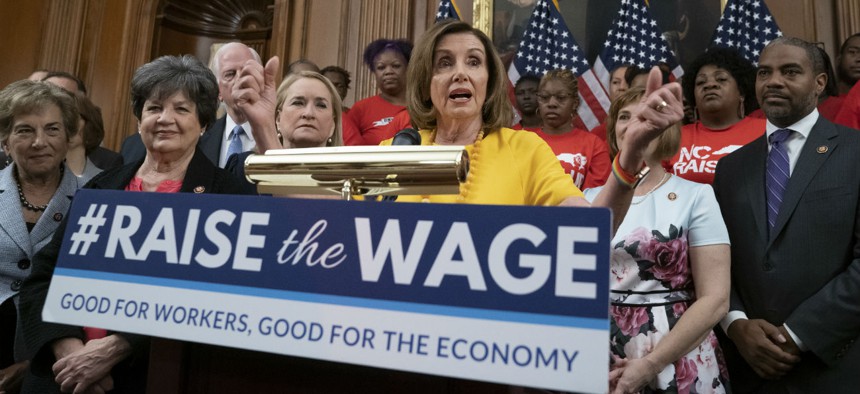Most Feds Won't Reap the Benefits of Local Minimum Wage Laws
OPM last week announced that it will not raise the lower levels of the federal pay scales to comply with state and local laws increasing the minimum wage.
Federal workers on the low end of the General Schedule pay scale living in states or cities that have enacted laws to increase the minimum wage should not get their hopes up about getting more of a pay raise than Congress and the president enact in the coming years.
The Office of Personnel Management last week issued guidance to agencies instructing HR directors to stick to federal compensation regulations and not to comply with the growing number of states and localities instituting minimum wage laws in excess of the federal minimum wage of $7.25 per hour.
“Federal employees are covered by the Fair Labor Standards Act, which is a federal law,” wrote Mark Reinhold, associate director of OPM for employee services. “Thus, the FLSA minimum wage is generally applicable to federal employees unless they are exempt from the minimum wage requirements as provided under the FLSA exemption provisions . . . State and local government minimum wage laws are not binding on the federal government and its component agencies.”
Few, if any, federal workers are currently paid less than the minimum wage in their state or locality. According to OPM, GS-1 employees already make $9.13 per hour in base pay, and with the lowest locality rate, that figure rises to $10.56 per hour. But that could soon change, as a number of local laws raising the minimum wage to $15 go into effect in the coming years.
Agencies that have been given the authority to set their own compensation levels, in excess of the General Schedule, retain the ability to increase rates of pay above the federal minimum wage, but Reinhold wrote that they are not obligated to do so.
“In the case of a federal employee pay system under which the employing federal agency has discretion in setting rates of pay, the agency may apply state and local minimum wages to covered employees as a matter of agency policy or through a collective bargaining agreement (where applicable),” he wrote. “However, the agency should make it clear that employees are not actually covered by the state or local minimum wage law or any appeal mechanisms established under such a law.”
This guidance does not apply to all low-paying federal jobs, however. Regulations governing the Federal Wage System, a pay scale primarily for blue-collar positions in the federal government, state that local minimum wages do supersede the federal minimum wage.
“Under this regulation, the highest state or local minimum wage in effect in the local wage area is applied in setting wage schedule rates unless there is a higher FLSA minimum wage under federal law,” Reinhard wrote. “In other words, if there are multiple state or local minimum wages in effect in different jurisdictions encompassed within the same local wage area, the highest minimum wage will be used in setting wage schedule rates for the entire local wage area, if that minimum wage rate exceeds the FLSA minimum wage rate.”
NEXT STORY: Most TSP Funds Crept Up in November




